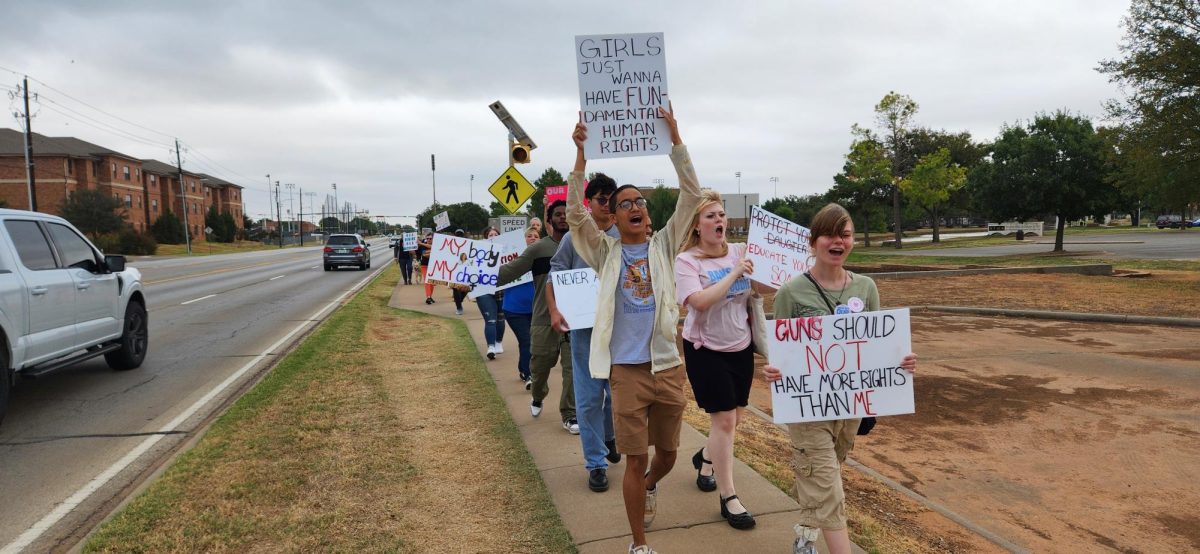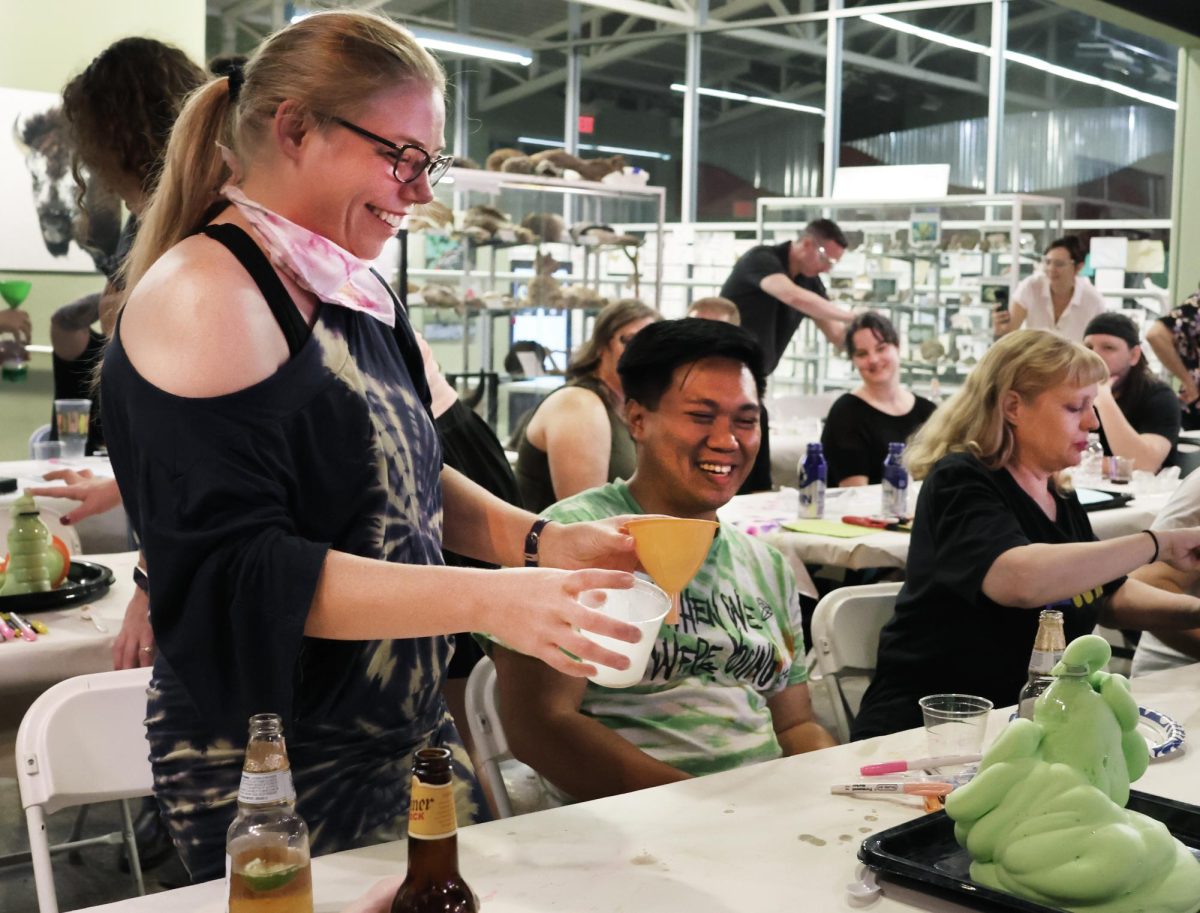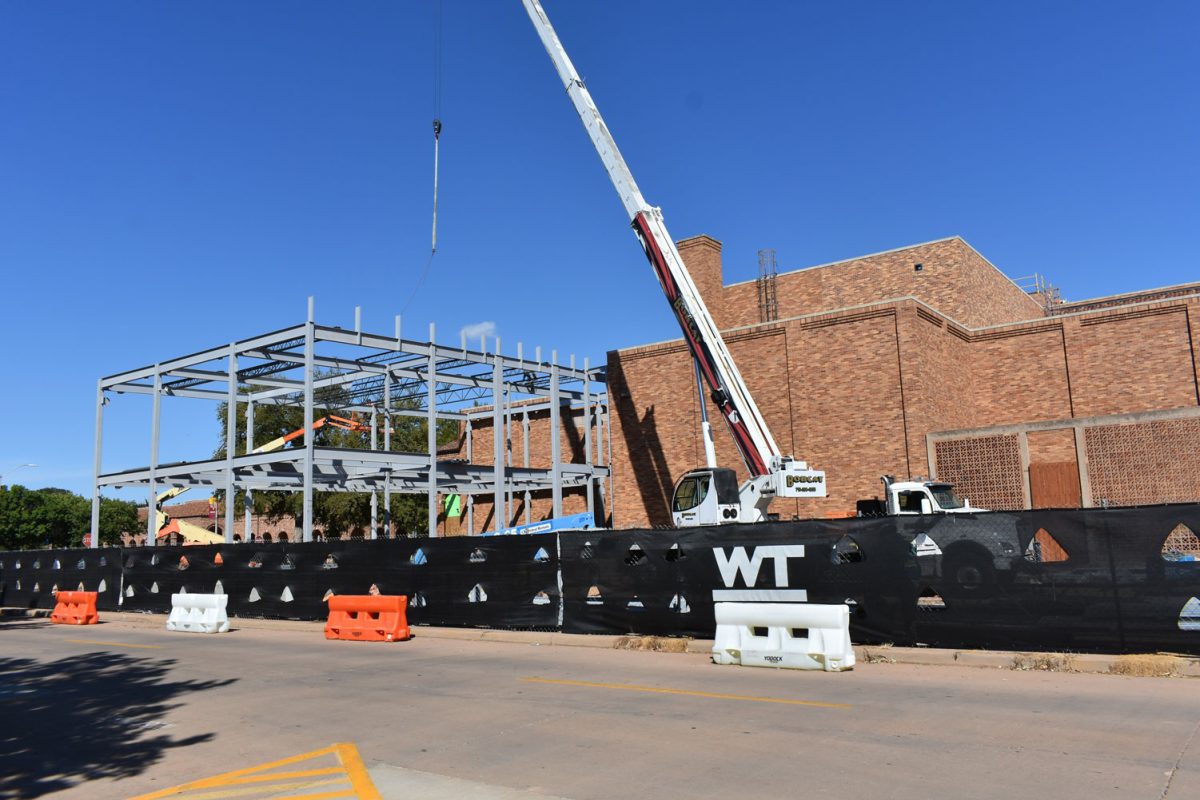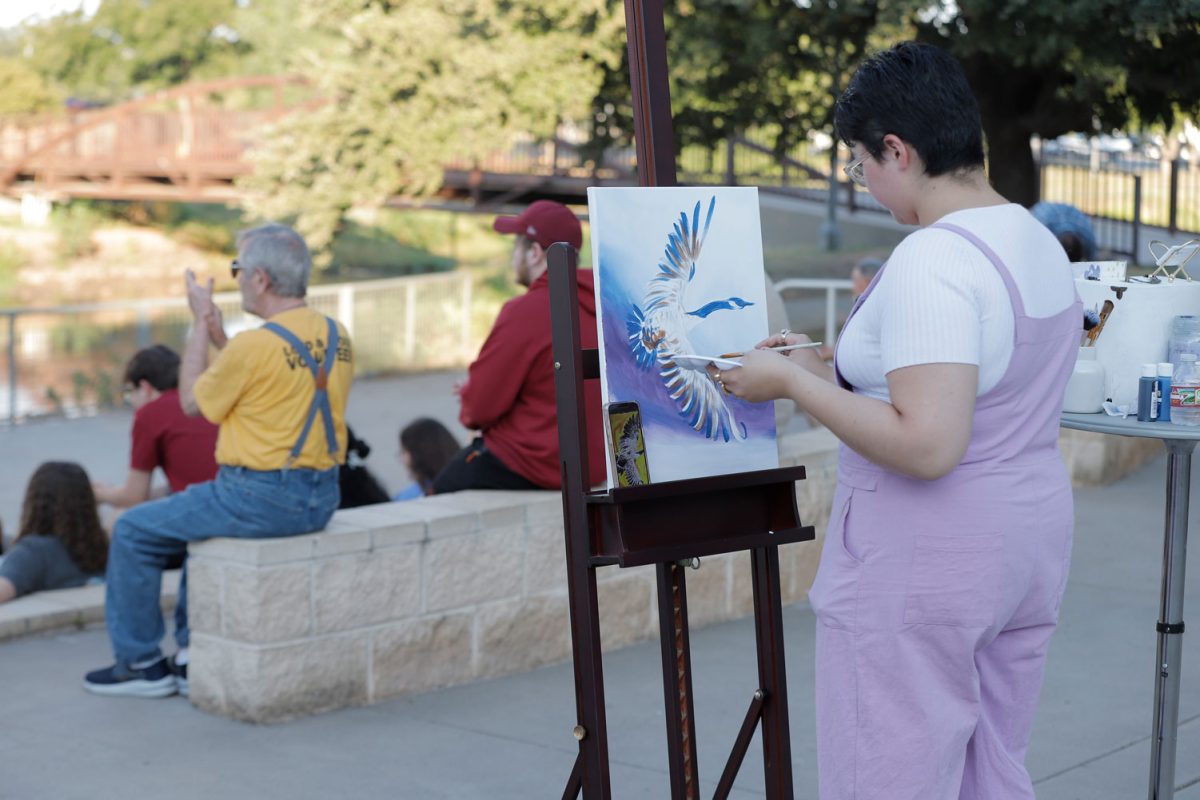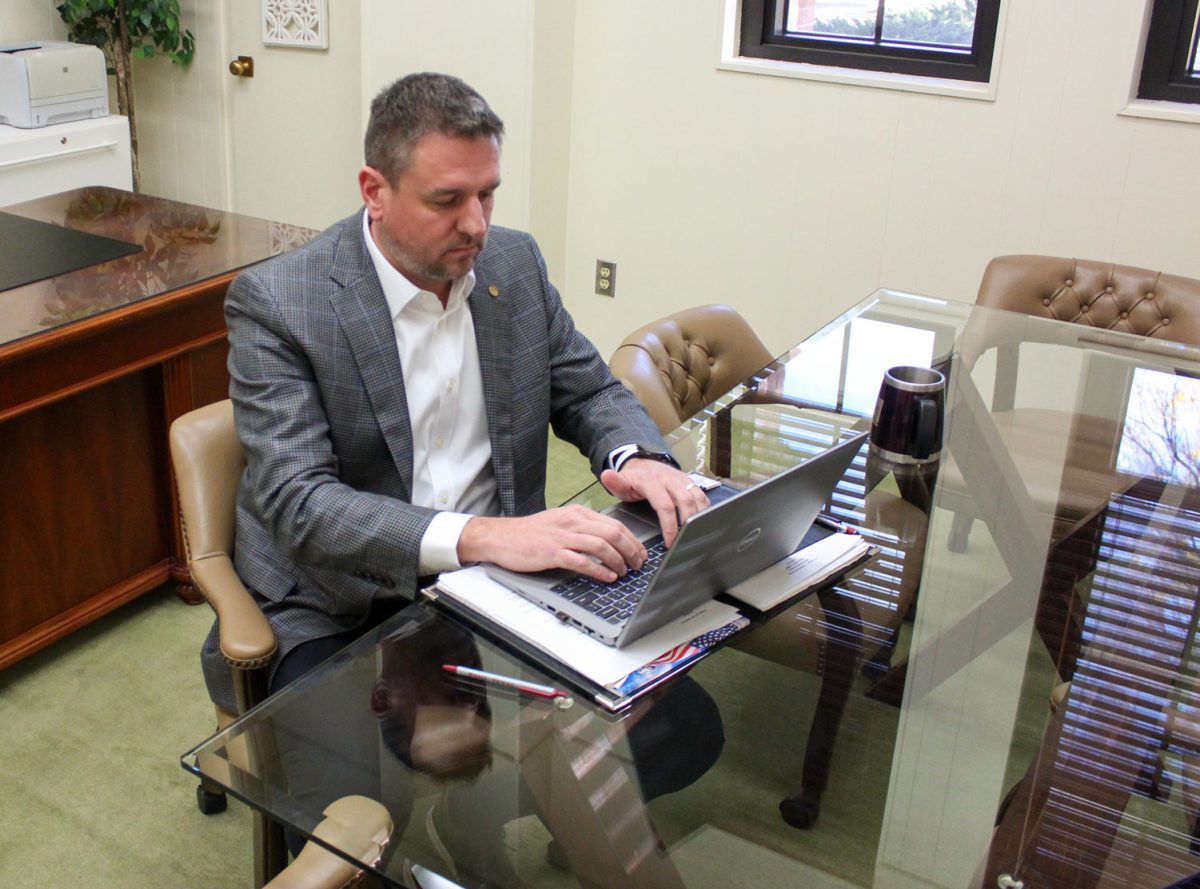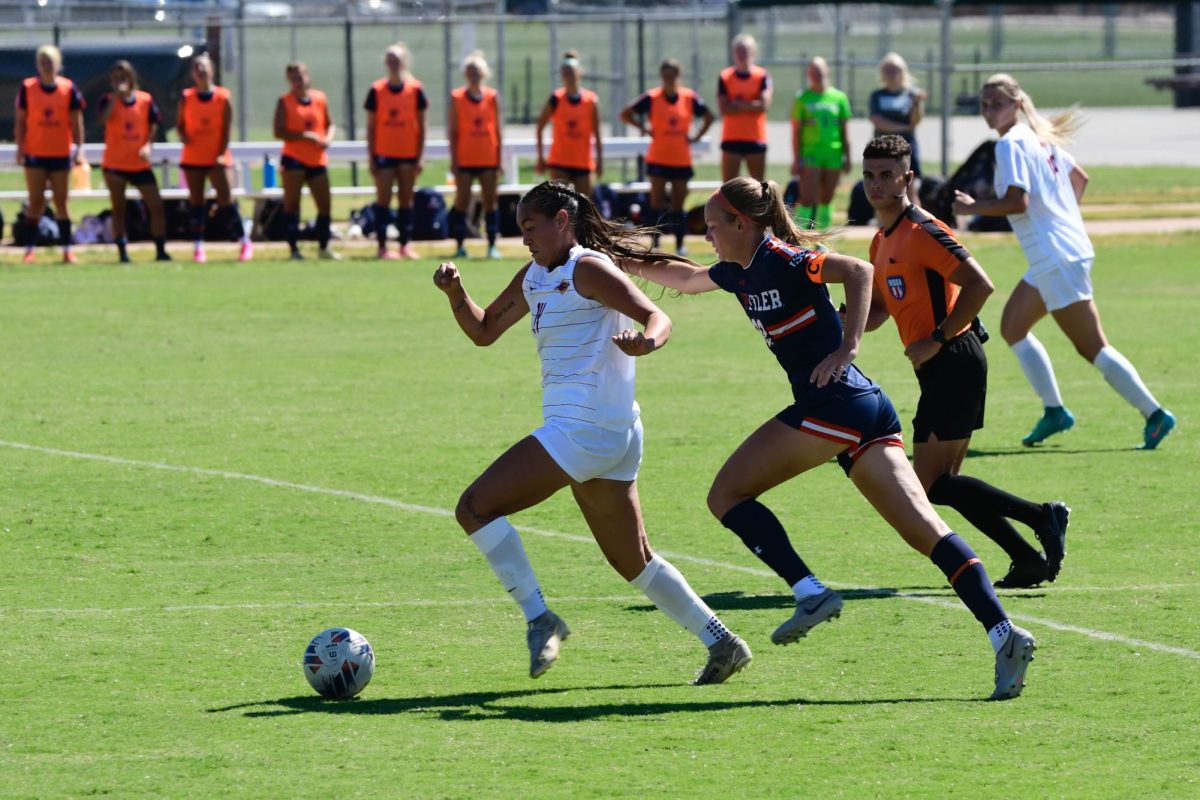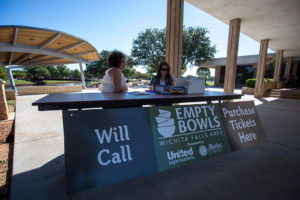
The fifth annual Empty Bowls event, held at the Wichita Falls Museum of Art, does more than just raise money for the Wichita Falls Area Food Bank.
Bob Barrow, artist and volunteer at the event, said, “It’s a great city event and it is going to help people.”
Forty students and non students made clay bowls to give away to attendees who made a donation. Artists who enter bowls into the gallery can donate half or all of the money their pieces sell for. Those artists are also required to make three more bowls for a silent auction. A total of 1,050 bowls were displayed at the event.
“One in five people in Wichita Falls are food insecure,” Steve Hilton, associate professor of art and faculty resident at Legacy, said.
In past years, the event has raised anywhere from $65,000-$85,000, according to Empty Bowls Co-chair Tanya Gillen.
“Some people don’t have the money to give, but they have the ability to make something and give their time,” Barrow said.
But he thinks Empty Bowls does more than just raise money to feed people who are food insecure.
Barrow said, “It is neat to give people hope.”
But that hope isn’t just needed out in the community, it is needed on campus too.
Barrow said, “The thing is, when this is over, it continues on.”
Suzanne Shipley, university president, has recently discovered a new movement on other campuses.
Shipley said, “By contributing to Empty Bowls, our students were really ahead of a new movement on campuses, which is to feed the hungry, and that means hungry students as well. There is now a movement on college campuses to create a food pantry for students who need food to take home over the weekends.”
Hilton loves the idea, and has one of his own.
“One of the things I am thinking about doing is starting a garden somewhere on campus so that there are fresh vegetables that not only could we use for students but as a food source for the cafeteria,” Hilton said.
Shipley said she thinks hunger needs to be talked about more in the world, specifically on campus.
Shipley said, “I think it is really forward looking that our students have been contributing to this for a long time. It would be interesting to have a broader conversation about what hunger means, not only in the country and community, but on campuses.”










